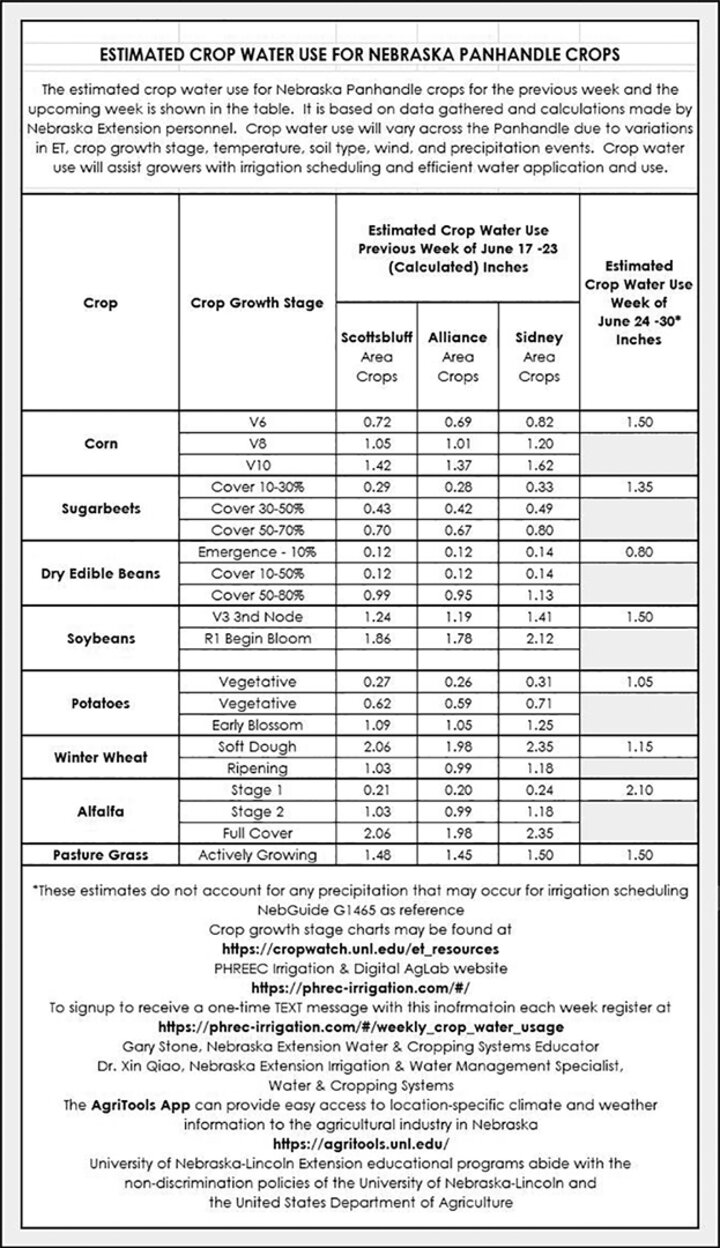Over the past several weeks, severe storms have damaged crops in the North Platte Valley and the Panhandle with heavy rainfall, hail, high winds and low-land flooding. The National Weather Service reported a confirmed EF-1 tornado on June 20, which damaged homes, crops and pivots along a two-mile path between Morrill and Mitchell, Nebraska. Hailstorms in the southern Panhandle have damaged the winter wheat crop. Heavy rainfall also flooded fields and county roads.
“High winds and a confirmed tornado have turned over pivots, damaged buildings, knocked out power lines and injured area crops,” said Gary Stone, Nebraska Extension educator.
He added that while the corn and sugarbeets are set back, they will recover. Some dry bean fields will have to be replanted, and area alfalfa fields were also damaged.
“The storm that passed through on Thursday (June 20) was exceptionally bad. A repeat of this weather is possible this Wednesday and Thursday (June 26-27),” he said.
Irrigation water deliveries continue in the North Platte Valley and will likely increase as warmer temperatures affect the crops.
Assisting growers with monitoring their crop's water profile is the estimated crop water use for June 24-30.
The table information includes the estimated crop water use for Nebraska Panhandle crops for the previous week and the upcoming week. The table is based on data gathered and calculations made by Gary Stone, Nebraska Extension educator, and Dr. Xin Qiao, extension irrigation and water management specialist, both based at the UNL Panhandle Research and Extension Center in Scottsbluff, Nebraska.
Crop water use will vary across the Panhandle due to variations in ET, crop growth stage, temperature, soil type, wind and precipitation events. Crop water use will assist growers with irrigation scheduling and efficient water application and use.
Register online to receive a weekly text message with the table information.
The AgriTools App can provide easy access to location-specific climate and weather information to the agricultural industry in Nebraska.


